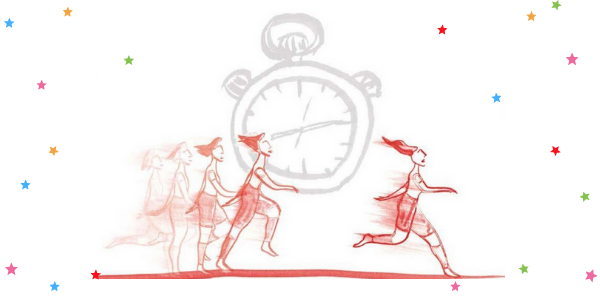
Learning the days of the week in French is an easy and common first step to discovering this complex language. It may also be useful if you plan on having meetings or traveling to French-speaking countries. What’s more, children tend to start by learning the alphabet, numbers, and days of the week.
Latin roots and references to planets in the French days of the week
As in many other languages, the French days of the week are named after planets. It is especially recognizable in French words, due to their Latin roots.
If you compare the French days of the week to those of your mother tongue, you will see that they most likely both refer to the same planet! It is a good way to memorize the names.
Let’s start with a summary. We will explain each of the French days of the week in detail :
- Monday is Lundi
- Tuesday is Mardi
- Wednesday is Mercredi
- Thursday is Jeudi
- Friday is Vendredi
- Saturday is Samedi
- Sunday is Dimanche.
Monday: Lundi
Monday is the day of the Moon. In French, the moon is called ”lune”. Thus, Monday is ”lundi”.
Be careful though: in ”lune”, the last part sounds like ”une”, whereas in ”lundi”, the « un » makes the same sound as in ”pain” (bread) or ”main” (hand).
If you want a song with ”lundi”, you can listen to Le lundi au soleil, by Claude François!
Tuesday: Mardi
Tuesday is the day of Mars, and called ”Mardi”. The name of the planet Mars is the same as the English word. The “r” sound is the only different part.
You’ve probably heard of ”Mardi gras”, a primarily Christian tradition, when French people splurge on food like crêpes – the French version of pancakes.
Wednesday: Mercredi
Wednesday, the day of Mercury, or “Mercure”, is called “mercredi”.
Fun fact: if you hear a French person shout mercredi! out of nowhere, it means they’re trying to swear without using a swear word.
Thursday: Jeudi
“Jeudi” (Thursday) is the day of Jupiter: the Latin root here is much more recognizable in French than in English.
Friday: Vendredi
“Vendredi” (Friday) is the day of ”Vénus” (Venus). The “ven” part of the word can be pronounced differently depending on the context and the accent: in ”Vénus”, you hear the French “é” as in ”café”, whereas in ”vendredi” you would pronounce “ven” as in ”vent” (wind).
Thursday and Friday are part of the end of the week, or ”la fin de semaine”. In France, “week-end” means the weekend, but only refers to Saturday and Sunday.
Saturday: Samedi
Saturday and Sunday do not directly refer to planets in French, but rather to religious traditions. “Samedi” (Saturday) is closer to the Latin word for Sabbath than to “the day of Saturn”.
Sunday: Dimanche
Similarly, ”Dimanche” (Sunday) has religious origins: it is « the Lord’s day« , based on the Latin ”dies Dominica”.
Learning the days of the week with Storyplay’r
Learn the French days of the week while having fun! You can read Les Grrr en vacances, by Clémence Sabbagh and Agathe Moreau to see how the French use the days of the week. A grumpy family embarks on exciting adventures for a week during the summer holidays. They leave on a Monday, and each day is dedicated to a specific activity – for instance, on Tuesday, they go hiking… in the rain!

Another great book to learn the days of the week in French is Derrière chez moi, by Shin Hyuna and France Quatromme.
Reading and listening to a book on Storyplay’r allows you to learn French faster and more effectively. Even if you don’t understand everything yet, you will be able to follow the story thanks to the text and accompanying illustrations. Plus you’ll be practicing your listening comprehension without even realising!
Having fun and discovering literature is one of the most effective ways to learn a language. On Storyplay’r, you can choose what you want to learn from a wide range of stories, based on topic, genre, but also length. Listening to short and relatively easy stories a few times a week before moving on to more complex books will allow you to really improve your French.
Have you read our articles on French months and how to count in French?












